An American Filipino and the presidential peanut farmer
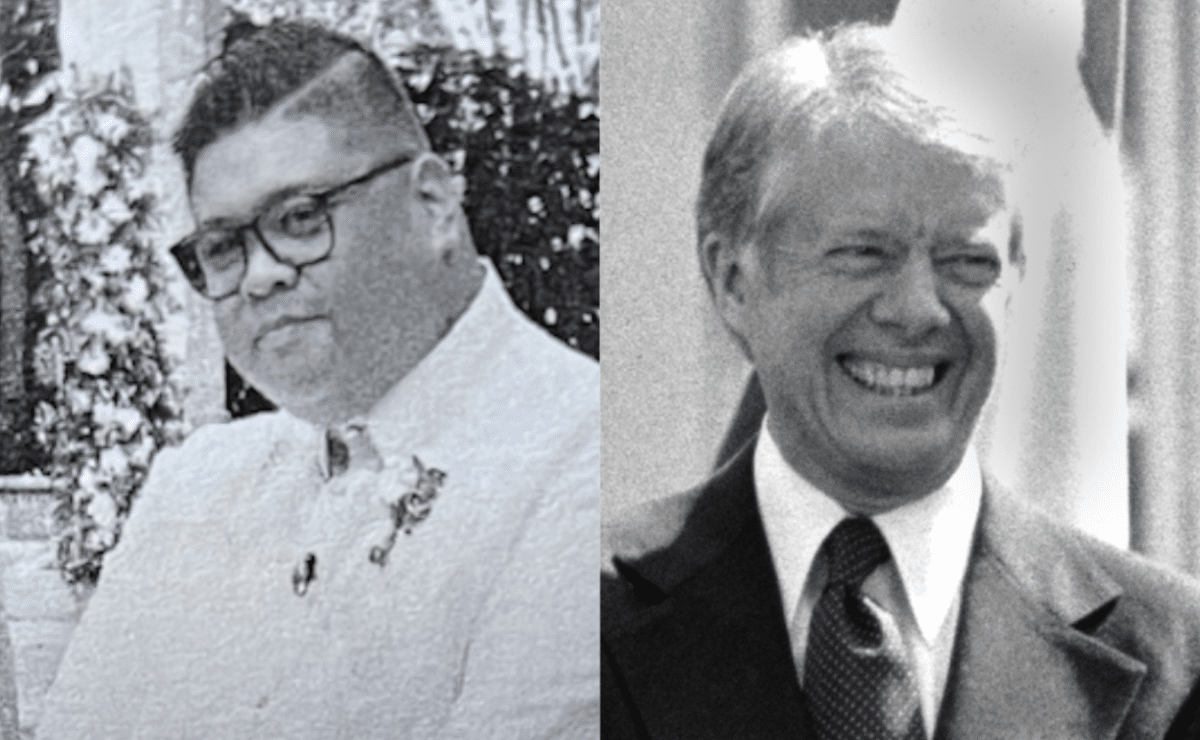
Kristopher Ancheta and former President Jimmy Carter/CONTRIBUTED
Jimmy Carter you know.
Kristopher Ian Ancheta, you probably don’t know.
I barely knew him, and he called me “uncle.”
To be precise, he was my first cousin’s husband’s brother’s son.
That’s what you call family, Filipino-style.
Sunday, Jan. 5, would have been Kristopher’s 35th birthday.
He didn’t make it.
In December, Kristopher came down with a bad case of bronchitis that developed into pneumonia. I remember having pneumonia 20 years ago and it nearly killed me.
This time, it killed Kristopher.
This past long weekend, we laid him to rest.
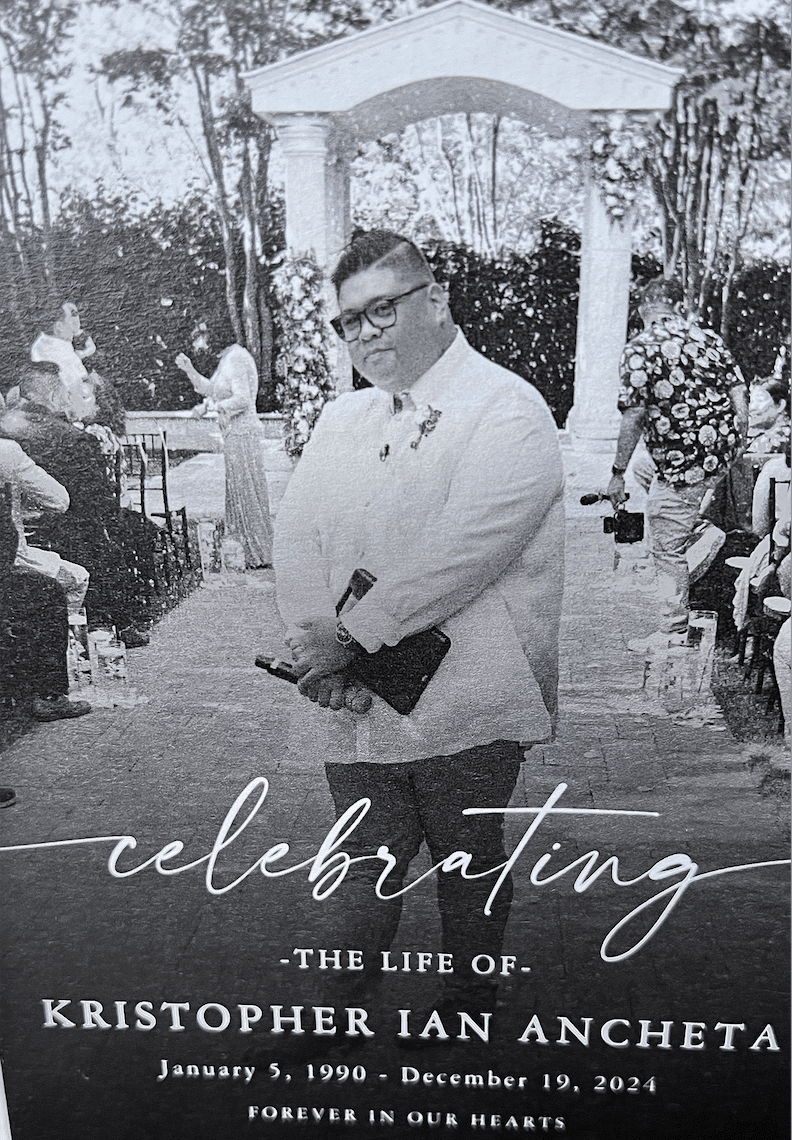
Kristopher Ancheta/CONTRIBUTED
It’s a rare coincidence when you bury a loved one at the same time a nation begins to mourn a former president.
But here I was, grieving the loss of my young relative in a small, intimate Bay Area chapel, while across the country, the world began a weeklong goodbye to Carter—a man whose life and legacy touched millions.
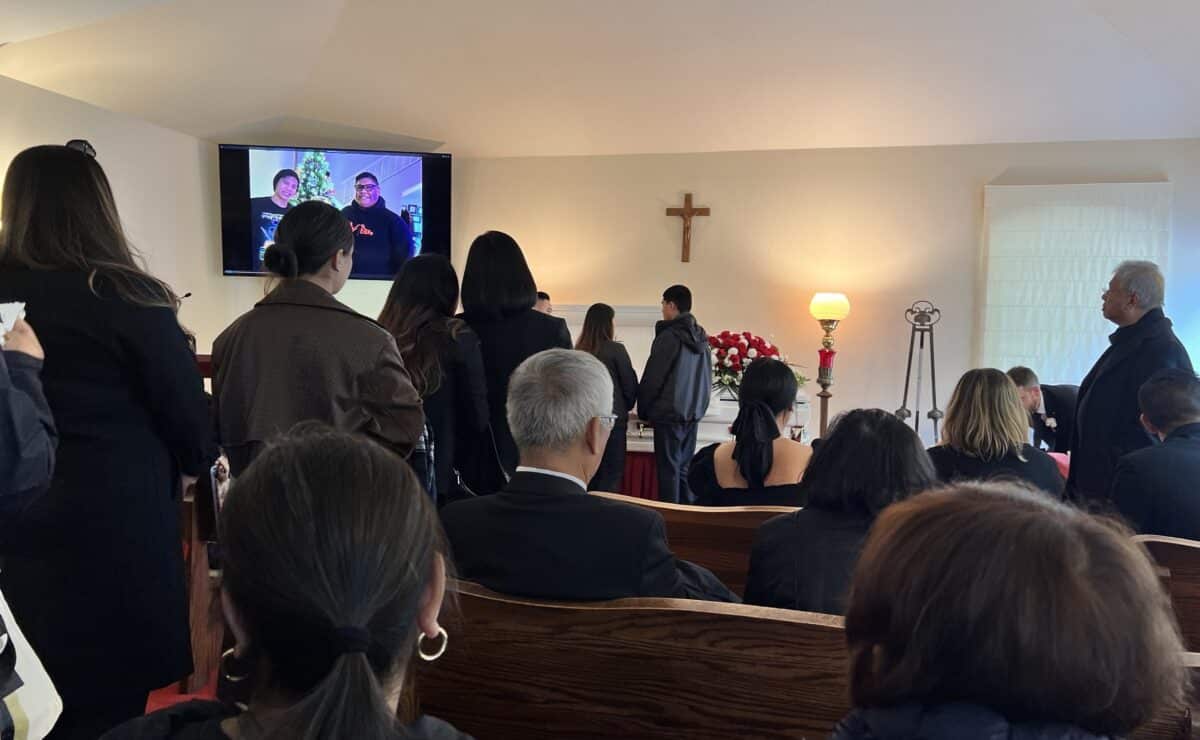
Memorial for Kristopher Ancheta/CONTRIBUTED
Two funerals, one weekend. One deeply personal, the other profoundly public. And somewhere in the overlap, I found myself reckoning with what it all means.
Kristopher was what Bowen Yang— who plays a Filipino TSA guy on SNL— might call a loud Asian. Kristopher was as loud and big an Asian American Filipino as you could imagine. It was his charm. He was kind, loving and funny in that John Candy way.
And he usually had food. That he cooked just for you.

Kristopher Ancheta/CONTRIBUTED
From his look, it was clear. Food was his passion. He didn’t miss a meal.
But he was not an ordinary foodie. He loved making it, sharing it and talking about it. He loved what it could do to bring people together. It was his calling.
In San Francisco, he found the perfect modern foodie job—cooking in the corporate food service space, where he elevated the cafeteria vibe with high-end meals for high-tech giants like Google. Most recently he cooked real food for the AI folk at Anthropic. Just so they’d know what was artificial and what was not.
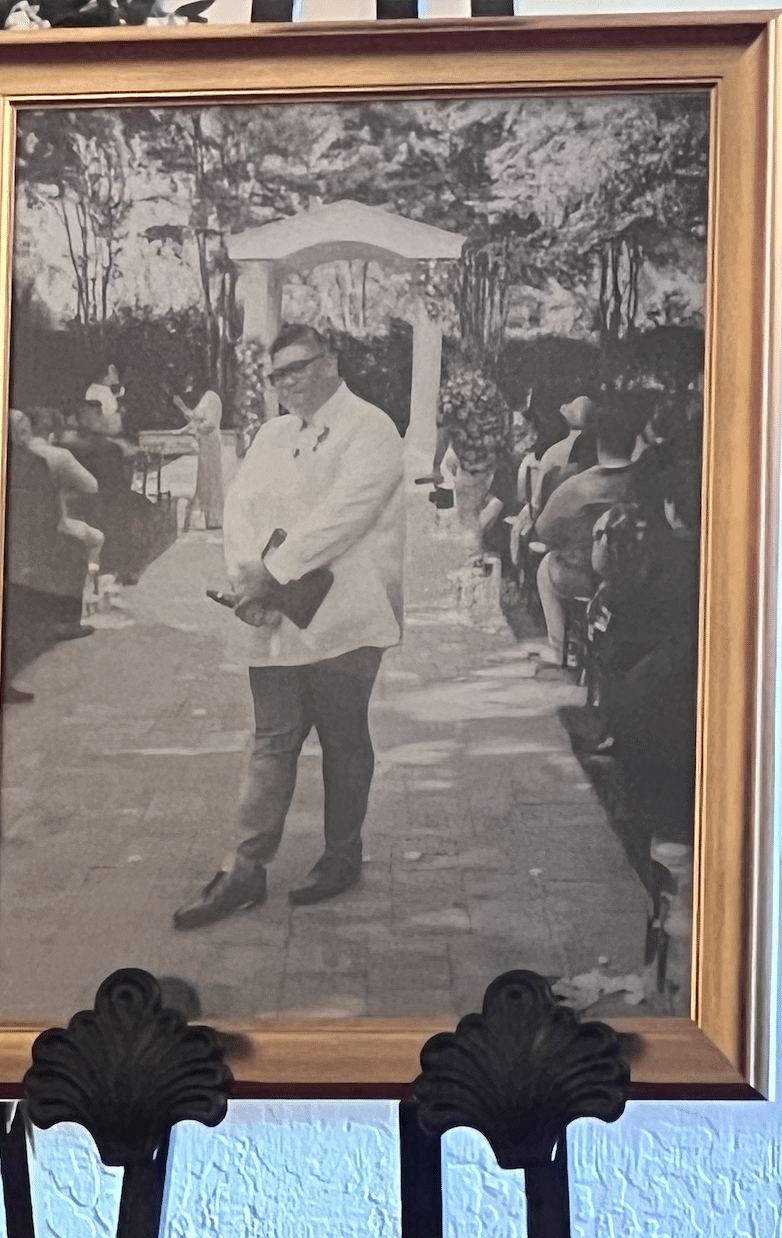
Kristopher Ancheta/CONTRIBUTED
But in his free time, he’d also do pop-ups, often for local charities, where he’d create one-of-a-kind plates that usually had some kind of Asian Filipino spin.
At the chapel service, I was surrounded by other family members and his friends, who all told stories of Kris. He had dreams—unfinished ones—and that big personality. Now, we were left with the echoes of what could have been, trying to make sense of a loss that defied logic.
In my mini-eulogy, I said how Kristopher had been carrying on the foodie tradition of the earliest Filipinos to America, like my dad, who avoided the fields and stayed in San Francisco to cook in restaurants. Kristopher wasn’t an immigrant. He was native San Franciscan, born here, a graduate of the Culinary Academy of Le Cordon Bleu. He ate knowingly.
We bonded over food, but also because we were both American born. Not immigrants. We were definitely Filipino, but we were individuals making our own way in America, a generation apart.
It’s one reason I regretted not talking to him since before the pandemic. I wanted to tell him how I found some roast lechon (pig) that was vegan, healthy and worth eating.
Too late.
At the same time, Jimmy Carter’s funeral coverage began hitting the news. Carter’s was a life filled with service, humility and a legacy that spanned decades. From the peanut fields of Georgia to the halls of the White House, Carter represented the kind of quiet decency that feels rare today. In a political era when the president-elect is a convicted felon, there’s some comfort in honoring someone for integrity, selflessness and an unwavering commitment to humanity.
The two funerals were quite the contrast. One for a man who had seen it all, done it all and left the world unmistakably better than he found it. The other, for a man who was just beginning, whose story was unfinished, whose potential will forever remain unrealized.
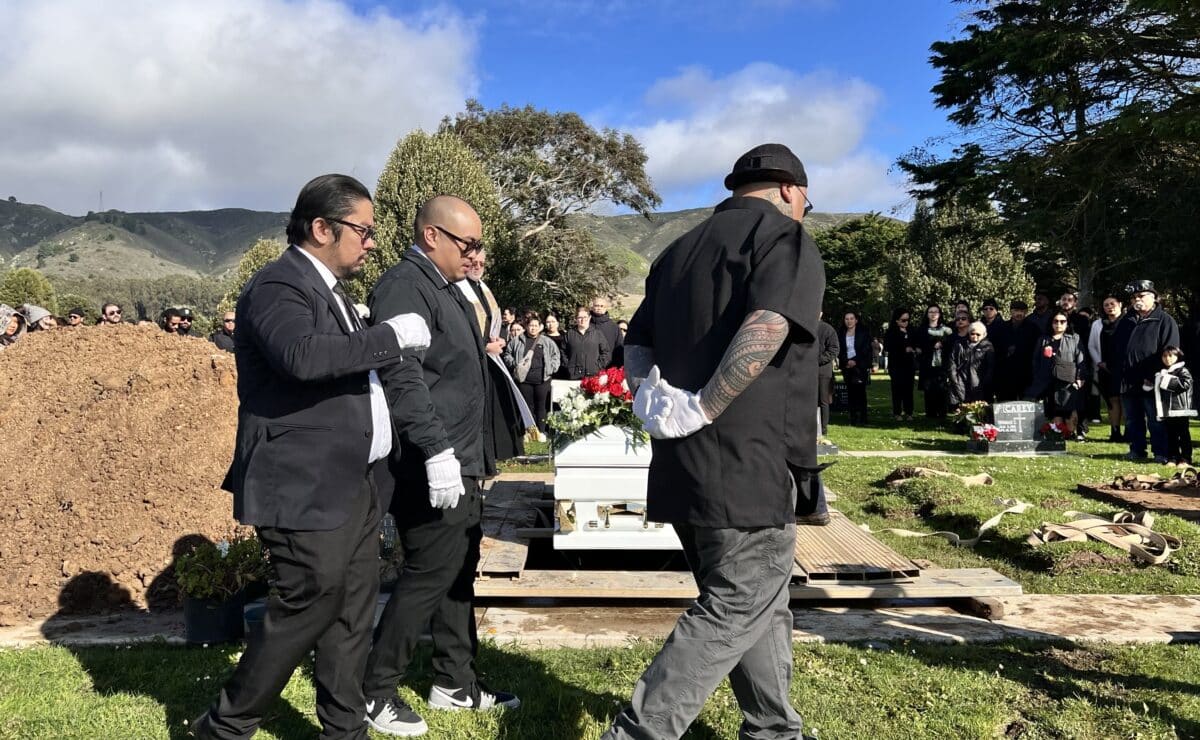
CONTRIBUTED
Yet, as I sat in that chapel with my family, I saw how both lives—despite their differences—carried the same essential truth: it’s not about how much time we get, but how we use it.
Jimmy Carter had 99-plus years to make his mark and used every minute of it. Even after leaving the presidency, he became a symbol of humility, building homes with Habitat for Humanity and teaching Sunday school well into his nineties. That’s where I met him in 2016 (see previous op-ed).
You may like: Keeping President Carter’s values alive as 2024 comes to an end
My cousin didn’t have the luxury of time, but in his short life, he made his mark. He connected with people, brought joy to those who knew him, and reminded us all how fragile and precious life is.
The parallels were obvious as I watched people in Georgia wave from the road to the Carter funeral procession through the state.
Both funerals were filled with love, with grief, and with the kind of stories that remind us why we gather to say goodbye. Funerals have a way of putting everything into perspective. They strip away the noise, the distractions, the things we think matter but don’t. In the end, it’s not about titles or accolades. It’s about love. It’s about connection. It’s about the impact we have on the people around us.
Jimmy Carter’s life was a lesson in service to America.
My cousin’s life was a lesson in joy to those around him.
Both remind me that whether we have 99 years or 34, the measure of a life isn’t in its length but in its depth.
Two different yet similar lives bring us to the same conclusion, that life is fragile, fleeting and ultimately about how we show up for each other.
As I left Kristopher’s funeral and watched Carter’s begin, it’s hard not to consider a question we ultimately must ask ourselves: What will we do with the time we’re given?
For Kristopher, it was a short but full repast. Tapas, finger food, perhaps, instead of a full banquet. But we had a lot. And we were full until that next time, when we will eat again.
Emil Guillermo is an award-winning journalist, commentator and storyteller. He writes a column for the Inquirer.net’s US Channel. Watch his mini-talk show “Emil Amok’s Takeout/What Does an Asian American Think?” on www.YouTube.com/emilamok1 or join him on patreon.com/emilamok

